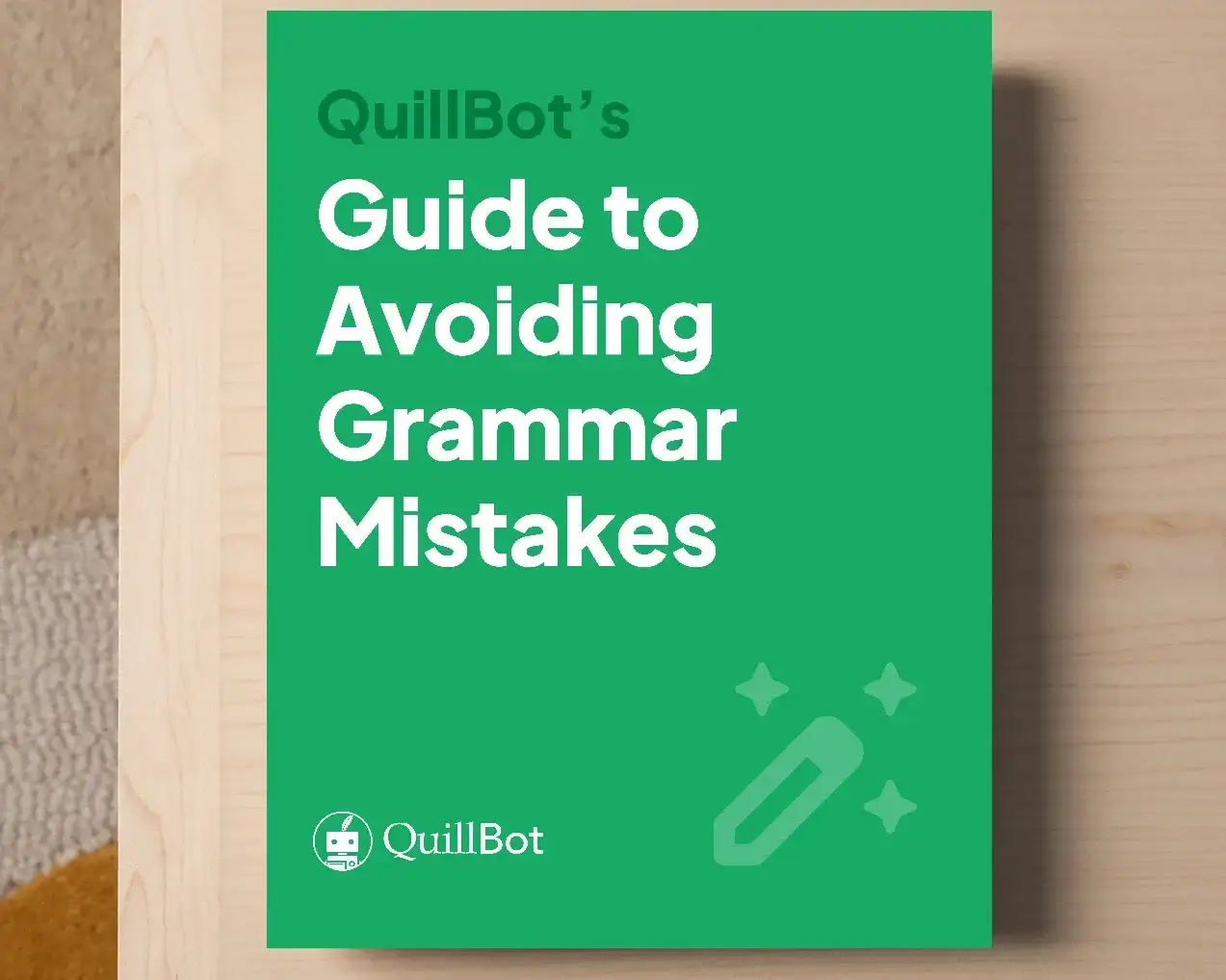The correct idiom is “say my piece,” meaning “to express your opinion on a matter.” Some people mistake this idiom with “hold your peace,” meaning “to stay silent.”
Likewise, some people get confused when choosing between piece of mind or peace of mind. The correct noun phrase is “peace of mind” to refer to “a feeling of contentment or safety,” though it sometimes gets confused with “give someone a piece of your mind,” meaning “to scold someone.”
Make sure you always use these phrases and idioms correctly with QuillBot’s free Grammar Checker.
Read this FAQ: Is it say my piece or peace?
A synonym for “which” when it is a relative pronoun is “that” or “whatever.”
As an interrogative pronoun, a synonym for “which” is “what.”
Regardless, don’t mix up wich and which. The correct spelling is “which.” QuillBot’s free Grammar Checker can make sure you don’t make this mistake.
Read this FAQ: What’s a synonym for which?
“Which of the following” asks the reader to choose an option from a list that appears next.
“Which” is an interrogative pronoun that asks for a choice from a list of options. “Of the following” is a prepositional phrase that means “of what comes next.”
This phrase is often used in multiple choice questions, where you have to choose the correct answer from a limited range of options.
Some people mix up wich and which, but remember the spelling is always “which.” Avoid this mistake by using QuillBot’s Grammar Checker.
Read this FAQ: What does which of the following mean?
You can use “which” in a sentence as a relative pronoun (e.g., “This book, which I bought used, is an original edition”) or as an interrogative pronoun (e.g., “Which house is yours?”).
Just make sure you don’t mix up wich and which; “which” is the correct spelling. QuillBot’s Grammar Checker can help you avoid this mistake in your sentences.
Read this FAQ: How do I use which in a sentence?
“Which” has various parts of speech:
Some people get confused when choosing wich or which, but “which” is the correct spelling. Make sure you don’t make this mistake by using QuillBot’s free Grammar Checker.
Read this FAQ: What part of speech is which?
It’s “tomato,” not “tomatoe.” The noun “tomato” is spelled without an “e” at the end.
However, in the plural, when choosing between tomatoes or tomatos, “tomatoes” is correct.
Keep track of these spellings easily by using QuillBot’s Grammar Checker.
Read this FAQ: Is it tomato or tomatoe?
“Echoes” and “echos” are plural forms of the noun “echo.”
“Echoes” is the commonly accepted plural among most major dictionaries. It’s also the correct spelling according to QuillBot’s Grammar Checker.
But some dictionaries also list “echos” as a plural.
So, you should probably use “echoes,” but if you use “echos,” it may be considered correct depending on your audience.
Read this FAQ: What’s correct: echos or echoes?
The noun “tomato” is spelled “t-o-m-a-t-o.” There are six letters that alternate between vowels and consonants.
The plural of this noun often gives people more trouble. When choosing between tomatoes or tomatos, “tomatoes” (with the “e”) is always correct.
Make sure you always spell these words correctly with QuillBot’s free Grammar Checker.
Read this FAQ: How do you spell tomato?
“Potatoes” (with an “e”) is the correct spelling of the plural form of the noun “potato.” “Potatos” is a misspelling and is always wrong.
This works the same way as tomatoes or tomatos; “tomatoes” is the correct spelling.
Use QuillBot’s free Grammar Checker to make sure you always spell “potatoes” correctly.
Read this FAQ: What’s correct: potatoes or potatos?
In English sentences, the country is always referred to as “the Netherlands” even though “Netherlands” can be used on its own in, for example, lists of countries. “The” is only capitalized when it comes at the beginning of a sentence.
Examples:
- We visited the Netherlands over the summer.
- The Netherlands borders Germany and Belgium.
QuillBot’s Grammar Checker extension can help you use country names like “the Netherlands” correctly.
Read this FAQ: Is it netherlands or the netherlands?
